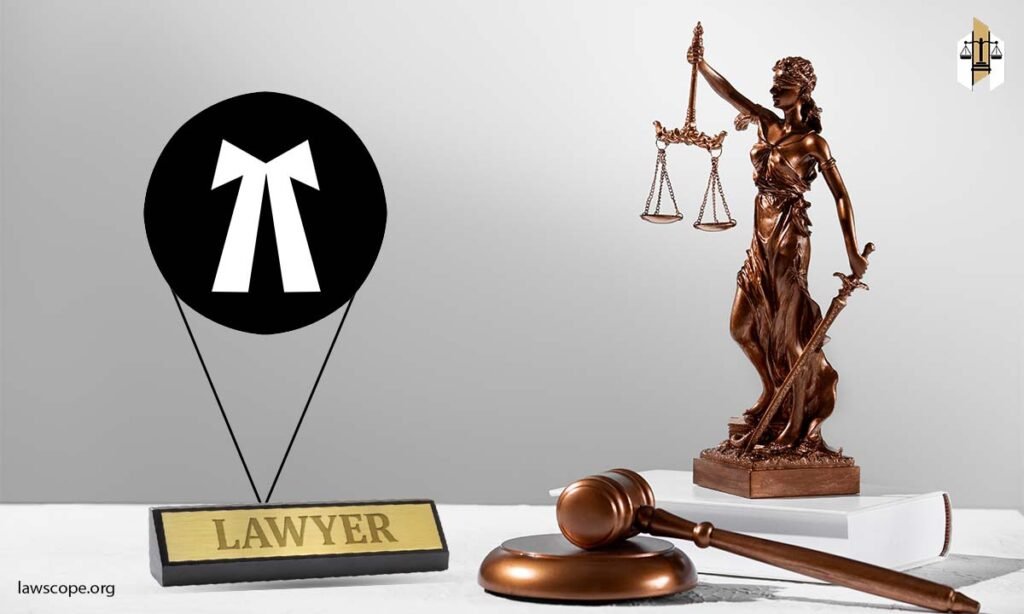
Whether you’re dealing with complicated legal issues or just looking for legal advice, finding the right lawyer can be a daunting task. With so many options out there, it’s easy to get overwhelmed. But don’t worry, this blog post has got you covered! We’ve got ten key tips and things you should consider listed here to help you make the right choice when it comes to choosing a lawyer.
We’ll cover things like how to evaluate the experience of a lawyer, their communication style, how much they charge, and more.
Significance Of Picking The Right Lawyer For Your Defense
Choosing the right lawyer can make all the difference when it comes to a legal dispute, divorce, or criminal charge.
It’s important to make sure the lawyer you choose is knowledgeable and experienced in the area you’re dealing with.
For example, a criminal lawyer would be better suited for a case involving a criminal charge.
They should also be able to help you understand the legal system and the rights and options you have.
They should be able to point out any potential pitfalls or risks in the case, so you can be sure you’re getting a fair deal and protecting your interests.
Ultimately, it’s important to do your research and compare lawyers to make sure you’re getting the best lawyer for your case.
10 Crucial Factors To Consider While Choosing The Right Lawyer
When you’re looking for a lawyer, you want to make sure they have the right qualifications, the right price, the right area of expertise, and the right location.
You want to trust their legal advice and their ability to help you through tough times.
Just like you would with an accountant or a contractor, you’ll want to make sure you’re giving them as much information as possible.
Here are 10 things to keep in mind when looking for the right lawyer.
1. Availability
When you’re looking for a lawyer, think about how long they’ll be working on your case, how many cases they’ll have, and how well they’ll be able to handle it.
If they don’t seem like they have a lot of time on their hands, you’ll want to find someone who can take care of what’s important to you.
Some lawyers have a team of people working with them, like support staff and a paralegal, which can affect the quality and price of their services.
It’s important to make sure you know who’s working with you so you can get the best results.
2. Communication
To make sure you stay in touch, it’s a good idea to communicate actively from the start.
Talk about your preferred ways of communicating and set up regular check-ins for updates and any questions you have.
A good lawyer will be able to explain complicated issues, give straightforward advice, and give you options to think about before making a decision.
That way, you won’t miss any meetings or calls.
3. Compatibility
When choosing a lawyer, it is important to consider their character, credibility, and mutual respect.
An attorney who is diligent, judicious, thorough, and considerate will be of great benefit to you, as they will be willing to put in the effort and exercise good judgment.
4. Cost And Billing
When it comes to choosing an attorney, cost is one of the most important things to consider.
It’s important to get a quote and learn how they bill clients.
Some lawyers charge hourly rates which can be expensive depending on how complicated your case is.
You may also need to pay a retainer fee at the start to cover any future fees.
This fee must be paid into a trust account and if you work more hours than your retainer, you’ll be charged for any outstanding fees.
There are two types of attorney fees: a flat fee and a contingency fee.
A flat fee may be expensive upfront but could save you money down the road.
If you lose your case, you’re not charged a contingency fee, but you’ll keep a percentage of any winnings awarded by the court.
You may also be able to negotiate for a lower fee cap or a shorter billing interval.
It’s also important to ask whether expenses such as shipping, filing, and travel are included in the fee, as they may not be treated in the same way and could be charged separately.
If you’re not happy with the quote, or if the cost is out of your range, shop around.
Ask the same questions as you would with any other firm or lawyer.
When you’re choosing a law firm or attorney, make sure you’re clear about the cost terms, and don’t be afraid to ask questions about the price.
You don’t want to be surprised by the cost, and you may want to make sure all costs are confirmed in writing.
Many jurisdictions require lawyers to provide their clients with a note about their fee structure at the outset of the hiring process.
5. Experience
It’s important to pick an attorney who has similar experience.
Most attorneys offer free consultations and you can find them on their website.
However, the value of having a more experienced attorney depends on if their experience is right for you and your budget.
6. Firm Size
The size of your law firm will have a big impact on your decision.
Bigger firms are more well-established, have more money, and might cost more.
Clients usually have to deal with support staff just as much as they do with the lawyer.
Bigger firms might have more than one person from a secretarial team.
Smaller firms might be more personal and cheaper, but they might be limited in what they can do if they don’t have a specific area of law they specialize in.
7. Knowledge And Reputation
When you’re looking for a lawyer, it’s important to make sure they have the experience and knowledge to handle your case.
Ask for references from past clients or ask for a personal recommendation from a friend or family member.
You can also check out online sites like Just Answer to see who’s available, what they specialize in, and what their reviews say.
If you’re looking for an attorney, state bar associations are a great place to start.
Your lawyer’s reputation matters because it affects your life, your rights, and what’s important to you.
That’s why it’s so important to find a lawyer who has a good reputation.
8. Legal Field
Law is a huge area of study, and there are lots of different types of lawyers out there.
Some specialize in one area, while others specialize in another.
For example, a real estate lawyer might focus on real estate, while a business lawyer might be more focused on business and family matters.
A lawyer specializing in intellectual property might focus on immigration, while a general practice lawyer might be better suited to a more complex situation.
If you’re in a small town and need legal help, a general practice attorney is the way to go.
They can give you a straightforward consultation and help you get the legal advice you need.
9. Location
Different states have different laws, so it’s important to find a lawyer near you who knows the law in your area.
If you live in a rural area and don’t have a lot of money, a phone or email consultation can save you time on basic legal stuff.
But if you need complicated or long-term advice, it’s really important to find someone you know and trust in person.
10. Tenure
Before you go looking for legal help, it’s important to think about what’s best for you.
If you’re having a legal battle or just need quick advice, you may need a lawyer for a short period of time.
But if you’re starting a small business, you’ll need ongoing legal help because corporate laws can affect business operations, taxes, and even how you manage your employees.
Having a lawyer who knows your situation and who can represent you consistently in different situations is key for long-term legal help.
May You Like Also: Insurance Law Explained: Navigating Policies And Claims
Final Thoughts
Selecting the right lawyer for your case depends on several factors.
First, you need to understand the legal specialty you’re dealing with.
Second, you need to evaluate key qualities.
Third, you need to ask the right questions.
Fourth, you need to know the fee structure.
Finally, you need to use online resources and reviews to get a real-world perspective.
The best lawyer can be your best friend. They can guide you through the legal maze with skill and compassion.
It takes time and effort to find the right lawyer, but it pays off in the end.
Follow these tips to find a lawyer who has the experience, communication abilities, and reputation to get the job done right.
You May Like Also:



One thought on “Choosing The Right Lawyer: Your Guide To Legal Representation”